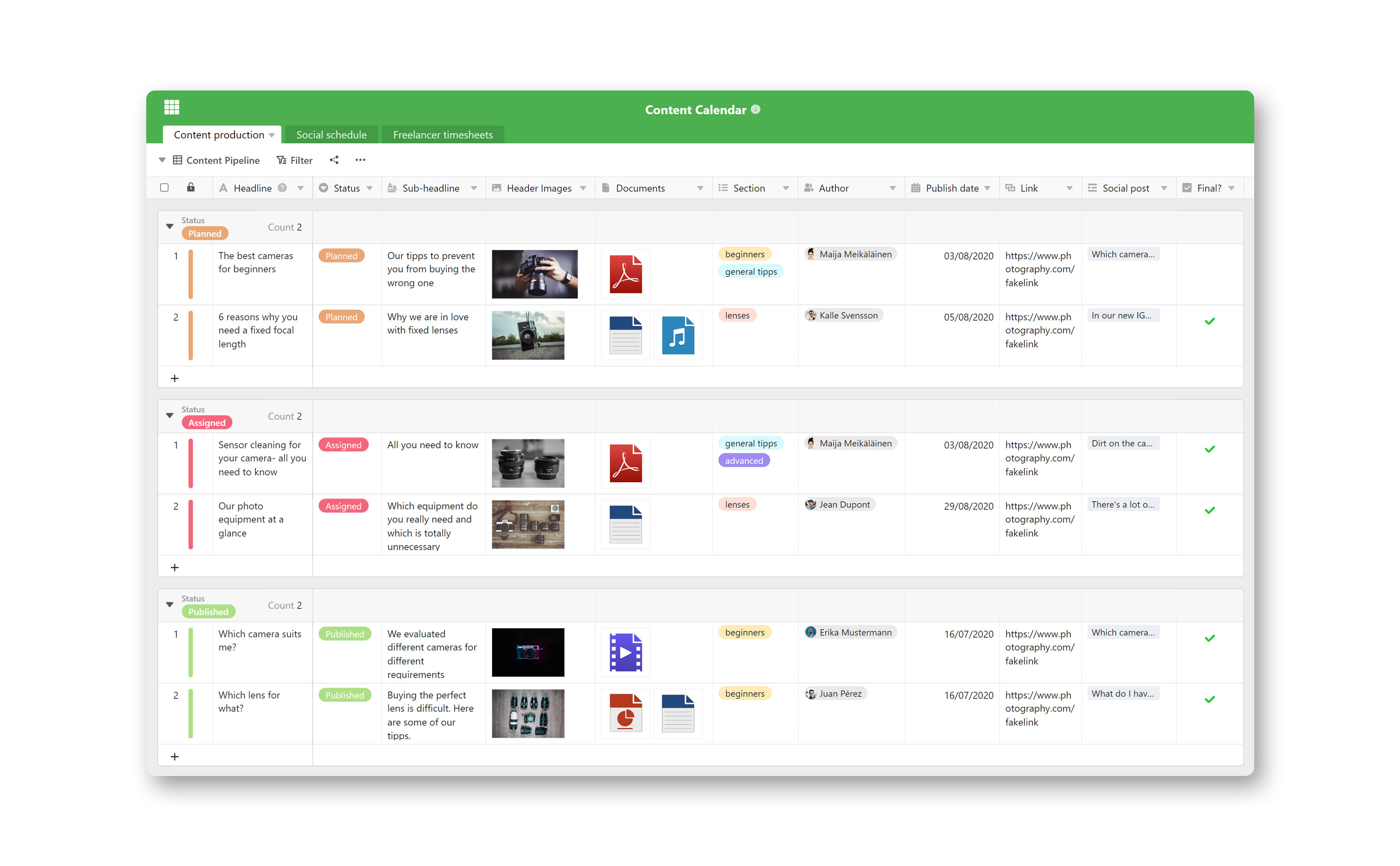Chinese startups aspiring to make it big in the West now face a major hurdle: their connections to home. The scrutiny faced by TikTok in the U.S. over its management structure and data practices is a poignant reminder that relinquishing one’s Chinese affiliations might be essential for gaining acceptance overseas.
In their expansion to the West, Chinese startups are now decoupling from home, as we have detailed in a series of stories (here and here). The process could include moving their controlling entity to a foreign country, switching to overseas cloud centers and relocating their executives abroad.
Against the backdrop of decoupling, one company is taking an unconventional path. Instead of trying to mask its Chinese identity, Seafile, a low-code application developer founded in 2012, has expanded internationally by forging a symbiotic relationship with its German joint venture, SeaTable.
Since its founding in 2020, SeaTable has amassed nearly 200,000 users for its cloud-based database platform outside China while the software’s on-premise version boasts about 500 clients, including the German Armed Forces, a corporation listed in the German stock index Deutscher Aktien Index (DAX) and several universities.
Unlike many globalizing Chinese startups that are fueled by heavy venture investment, Seafile has an enviably self-sustaining business. The company has raised no outside funding since nailing a one million yuan (~$142,000) angel round from Matrix Partners China a decade ago. Today, it’s profitable and funds all of SeaTable’s ongoing development in-house. Seafile has 40 employees in China and 10 in Germany.
Forgoing control
In 2019, Seafile’s two Chinese co-founders, Daniel Pan and Jonathan Xu, approached their future partners, Christoph Dyllick-Brenzinger and Ralf Dyllick-Brenzinger, with an intriguing proposition: set up a joint venture to help Seafile grow overseas.
At the time, the two German brothers, who were consulting veterans, had been helping Seafile distribute its other product, a sync-and-share solution, for a few years. They were enticed by the opportunity to have a stake in a product they genuinely believed in — a low-code database tool that gives a self-hosting option.
SeaTable offers both cloud-based and on-premise solutions, a strategy it believes sets it apart from the industry giant Airtable.
“Europe is all about data privacy, data sovereignty,” Ralf, chief executive at SeaTable, told TechCrunch in an interview. “So there is going to be big market demand for the product in Europe.”
The Dyllick-Brenzingers took on the challenge and founded SeaTable GmbH, with Seafile holding a 50% stake to keep its commitment to product development while maintaining a firm separation from the German firm’s management and access to customer data.
Focusing on Europe, SeaTable is multilingual and comes in English, German, French and Russian, with Spanish and Portuguese under development. Language may seem like an inconsequential feature, but in underserved markets with high purchasing power, like France and Japan (as is the case with meeting productivity tool Airgram), having the localized option could help a startup get ahead. SeaTable also boasts a capacity of storing millions of records compared to Airtable’s scale of tens of thousands, according to Ralf.
In retrospect, the two Chinese founders have picked the best possible path for Seafile’s global expansion at a time when the public and government in the West are increasingly skeptical of companies’ Chinese links. But entrepreneurs who want to run an empire don’t let go easily, much less deal with partners who live thousands of miles away. As Ralf remarked: “I think it needs a lot of trust between the two sides.”
Data separation

Though Seafile doesn’t engage in SeaTable’s day-to-day operation, it plays a key role by developing the database platform from Guangzhou, a setup that’s common amongst global tech firms that want to tap China’s affordable, quality engineers.
“The China team gives us a piece of software… that everyone can download from the internet, from the repository, and we the German team run with that. The repository is kind of like the separation line. Everything on this side of the repository is managed by Jonathan and Daniel and everything on that side is managed by us,” explained Ralf.
A repository, in computer programming, is a centralized digital storage that developers use to make and manage changes to an application’s source code.
SeaTable’s SaaS version is fully operated by the German joint venture and stores data in Europe. All customization and services happen at its German office, which handles everything from installing the software, running upgrades, managing backups, troubleshooting, reading and interpreting logs, to optimizing system performance.
“Managing the system are German nationals or European nationals. Apart from the fact that SeaTable is developed in China, it’s about as European as it can get,” the founder added. “It’s ironic that we all have hardware manufactured in China… but Chinese software has a difficult position in Europe.”
The German brothers admitted that SeaTable’s way of marketing isn’t the “safest.” While some customers are fine with its Chinese roots, others, including a ministry in France, have reservations about software originating from China. But this proactive approach sometimes leads to amicable discussions on new forms of cross-border collaboration that leverage software development in China on the one hand and localization efforts in the target countries on the other.
“Some customers I speak to are totally oblivious of the Chinese origin of SeaTable and it’s me who discloses it to them. We don’t want to engage in discussions and then at the very end it comes up like SeaTable is Chinese and then they say, look, you should have told us earlier,” said Ralf.
“So we are very proactive about that and many customers find this interesting because, in the early 2000s, the typical joint venture model was that European and American companies went to China and looked for a Chinese partner to build their business in China. Now we are an example of a Chinese company coming to Europe to form a joint venture. People realize that ‘oh, this is actually interesting,’ so they are curious to learn more about that.”































Comment